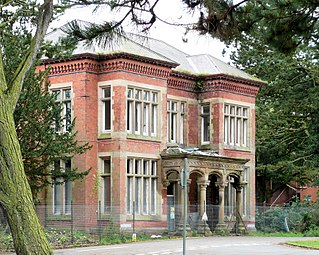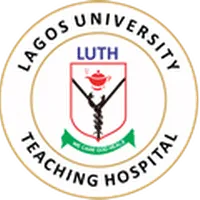
The Eastern Cape is one of the nine provinces of South Africa. Its capital is Bhisho, but its two largest cities are East London and Gqeberha. Due to its climate and nineteenth century towns, it is a common location for tourists. It is also known for being home to many anti-apartheid activists, the most famous being Nelson Mandela hailing from the province.

Matron is the job title of a very senior or the chief nurse in several countries, including the United Kingdom, and other Commonwealth countries and former colonies.

The Chris Hani District Municipality is a landlocked district municipality situated in the centre of the Eastern Cape province of South Africa and is made up of eight local municipalities. Most of the communities are in rural areas. The landscape ranges from moist uplands and grassland hills to the arid Karoo scrubland.
Ngcobo, alternatively rendered Engcobo, is a town in the Eastern Cape province of South Africa.

An intensive care unit (ICU), also known as an intensive therapy unit or intensive treatment unit (ITU) or critical care unit (CCU), is a special department of a hospital or health care facility that provides intensive care medicine.

Whittingham Hospital was a psychiatric hospital in the parish of Whittingham, near Preston, Lancashire, England. The hospital opened in 1873 as the Fourth Lancashire County Asylum and grew to be the largest mental hospital in Britain, and pioneered the use of electroencephalograms (EEGs). It closed in 1995.
Kagando Hospital, also known as Kagando Mission Hospital, is a hospital in the Western Region of Uganda.

Nursing is a profession within the healthcare sector focused on the care of individuals, families, and communities so they may attain, maintain, or recover optimal health and quality of life. Nurses can be differentiated from other healthcare providers by their approach to patient care, training, and scope of practice. Nurses practice in many specialties with differing levels of prescription authority. Nurses comprise the largest component of most healthcare environments; but there is evidence of international shortages of qualified nurses. Nurses collaborate with other healthcare providers such as physicians, nurse practitioners, physical therapists, and psychologists. There is a distinction between nurses and nurse practitioners; in the U.S., the latter are nurses with a graduate degree in advanced practice nursing, and are permitted to prescribe medications unlike the former. They practice independently in a variety of settings in more than half of the United States. Since the postwar period, nurse education has undergone a process of diversification towards advanced and specialized credentials, and many of the traditional regulations and provider roles are changing.
In South Africa, private and public health systems exist in parallel. The public system serves the vast majority of the population. Authority and service delivery are divided between the national Department of Health, provincial health departments, and municipal health departments.

Sister Henrietta, CSM and AA was a British nursing pioneer and Anglican religious sister. Through her influence and pressure the first state registration of nurses and midwives in the world was brought about when the Cape of Good Hope Medical and Pharmacy Act of 1891 passed into law. She was a member of the Anglican Community of St Michael and All Angels.
The Hunter-Bellevue School of Nursing (HBSON) is the nursing school of Hunter College, a public university that is a constituent organization of the City University of New York (CUNY). It is located on the Brookdale Campus, at East 25th Street and 1st Avenue in Kips Bay, near Bellevue Hospital. The school is the flagship nursing program for CUNY.

Cecilia Makiwane Hospital (CMH) is a large, provincial, government-funded hospital situated in the Mdantsane township near East London, Eastern Cape in South Africa. It is a tertiary teaching hospital and forms part of the East London Hospital Complex with Frere Hospital. It is named after Cecilia Makiwane, the first African woman to become a professional nurse in South Africa.
Cofimvaba Hospital is a Provincial government funded hospital in Cofimvaba, Eastern Cape in South Africa.
Onandjokwe State Hospital, until 2016 Onandjokwe Lutheran Hospital, is the oldest hospital in the northern part of Namibia. It was built in 1911 by the Finnish Missionary Society under the leadership of Selma Rainio. The hospital was operated by the Evangelical Lutheran Church in Namibia (ELCIN) via Lutheran Medical Services until 2016, when the Government of Namibia took over.
Mjanyana Hospital is a Provincial government funded hospital in Ngcobo in the Chris Hani District Municipality of the Eastern Cape Province of South Africa.

Ulwaluko, traditional circumcision and initiation from childhood to adulthood, is an ancient initiation rite practised by the Xhosa people, and is commonly practised throughout South Africa. The ritual is traditionally intended as a teaching institution, to prepare young males for the responsibilities of manhood. Therefore, initiates are called abakhwetha in isiXhosa: aba means a group, and kwetha means to learn. A single male in the group is known as an umkhwetha. A male who has not undergone initiation is referred to as inkwenkwe (boy), regardless of his age, and is not allowed to take part in male activities such as tribal meetings.

Lagos University Teaching Hospital (LUTH) is a tertiary hospital established in 1961 and is located in Idi-Araba, Surulere, Lagos State, the administrative division of Nigeria. The teaching hospital affiliated with the University of Lagos College of Medicine established in 1962. The University of Lagos College of Medicine educates students and LUTH provides them with experience through placement and work experience.

Mount Carmel West was a primary care hospital located in Franklinton, Columbus, Ohio on a 37-acre campus. Mount Carmel West was the oldest hospital in the Mount Carmel Health System, founded in 1886 by the Sisters of the Holy Cross. The hospital was situated between Ohio State Route 16 and U.S. Route 62, and accessible from exits on Interstate 70 and Ohio State Route 315. The Mount Carmel College of Nursing is located on hospital grounds. U.S. News & World Report regionally ranked Mount Carmel East and West Hospitals the number 18 best performing among hospitals in Ohio and high performing in four specialties and procedures.
Helen Joseph Hospital is a public hospital based in Auckland Park, Johannesburg, South Africa. Prior to 1997, it was known as the J.G. Strijdom Hospital. As a teaching hospital, its affiliated to the University of Witwatersrand's Medical School.
Beatrice Thembekile Ngcobo was a South African politician and activist who represented the African National Congress (ANC) in the National Assembly from 2004 until her death in 2018. She served the KwaZulu-Natal constituency from 2009 onwards and chaired the Portfolio Committee on Tourism from 2014 to 2018.











